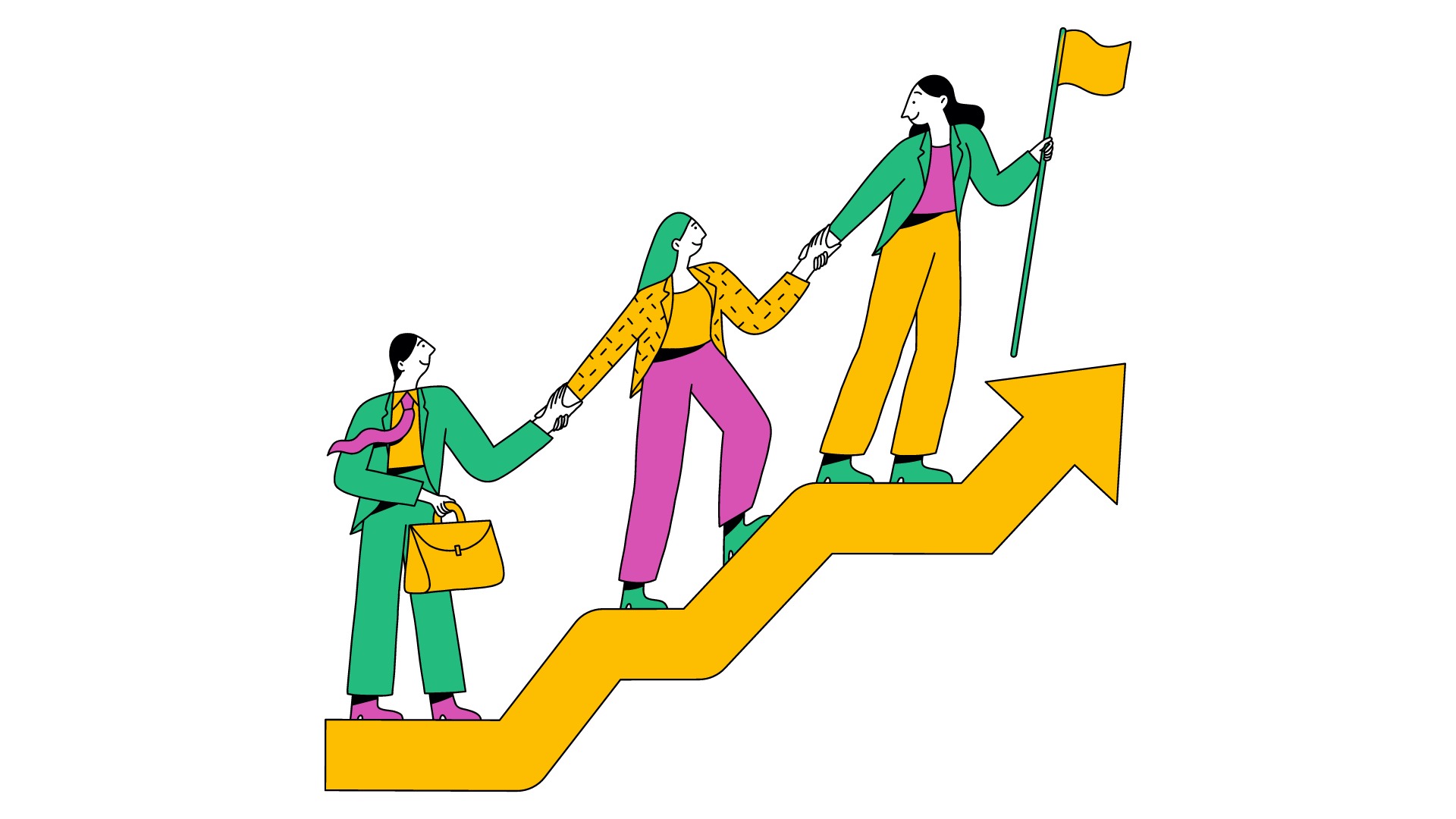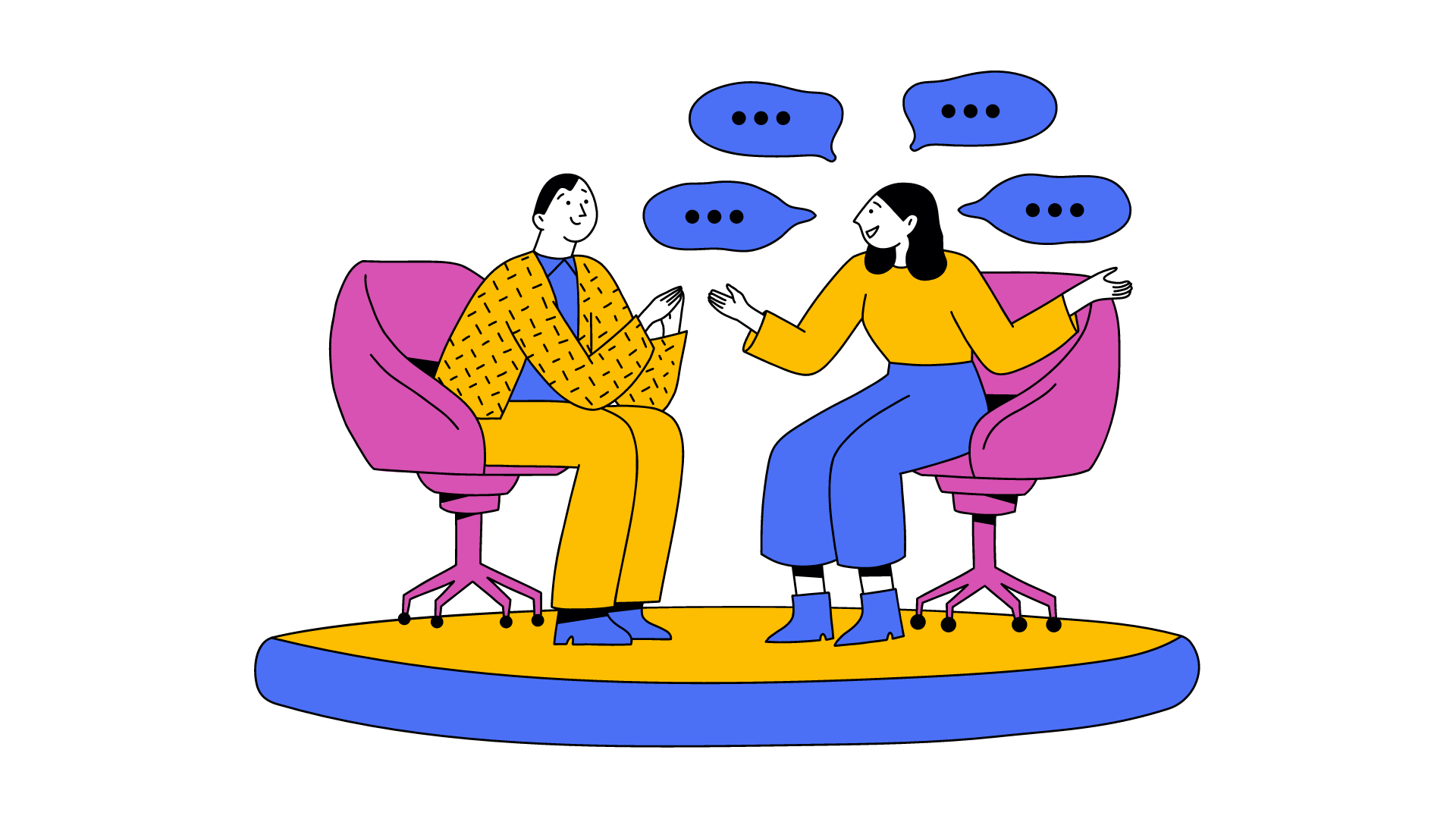Breaking the Menopause Taboo: What You Need to Know

In the UK, around 13 million women are currently going through menopause. Despite being the fastest-growing group in the workforce, menopause is still often treated as a taboo topic.
While some women go through menopause without major issues, others experience a range of physical and mental symptoms that can seriously affect their personal, social, and work life.
Given the large number of employees experiencing menopausal symptoms, it’s essential for you and your team to understand what menopause is and how you can support your colleagues through it. Read on to find out more or sign up to Tayl’s free Menopause in the Workplace course.
What is Menopause?
Menopause is when the ovaries gradually stop producing eggs, causing hormone levels (oestrogen, progesterone, and androgens) to drop. This leads to irregular periods until they eventually stop altogether.
This process marks the end of fertility and typically happens between the ages of 45 and 55, though it can occur earlier, it’s important to remember that menopause affects anyone with a menstrual cycle, including trans, non-binary, and intersex individuals. However, for simplicity, we’ll use the term ‘women’ when referring to those going through menopause, as is common in most research.
Stages of Menopause
While the term ‘menopause’ is often used to describe the whole process, it actually consists of three stages: perimenopause, menopause, and postmenopause.
- Perimenopause: This is the time leading up to menopause, and it can start 4-10 years earlier. Hormonal changes cause a variety of symptoms like lighter or skipped periods.
- Menopause: The official day of menopause is when a woman hasn’t had a period for 12 months in a row.
- Postmenopause: This is the time after menopause, starting 12 months and one day after the last period. Many women still experience symptoms during postmenopause, which can last for years.

Types of Menopause
Menopause doesn’t always happen naturally, and it doesn’t always follow a set age bracket. There are several types, including:
- Premature or early menopause: This happens naturally before age 40, sometimes as early as the teenage years.
- Medical or surgical menopause: When ovaries are removed or damaged due to illness, surgeries, or treatments like chemotherapy.
- Temporary artificial menopause: Sometimes, treatments for infertility can cause menopause-like symptoms that last as long as the treatment.
Common Symptoms of Menopause
As hormone levels drop, a wide range of physical and mental symptoms can arise, some of which can be difficult to manage.
Menopausal symptoms can last on average 4-8 years, though they may persist much longer. These symptoms often worsen gradually. Some common symptoms include:
- Irregular periods
- Hot flushes
- Memory lapses, brain fog
- Difficulty sleeping or insomnia
- Night sweats
- Fatigue
- Mood swings, irritability
- Depression and anxiety
- Joint and muscle aches
- Vaginal dryness or discomfort during sex
- Changes in sex drive and weight gain
Because the symptoms are so varied, many women don’t even realise they’re related to menopause and might not seek medical help.
Experiences of Menopause
It’s crucial not to generalise or dismiss anyone’s experience of menopause. Each person’s symptoms and experience will vary based on factors like age, disability, ethnicity, and sexual orientation.
This includes not only women but also trans, non-binary, and intersex individuals. Here’s a brief look at how menopause might affect different groups:
- Trans men: If their ovaries are still intact, they’ll go through natural menopause unless they’re on hormone therapy, which might alter the experience.
- Trans women: If undergoing hormone therapy, they may experience pseudo-menopausal symptoms when hormone levels fluctuate.
- Non-binary and intersex individuals: They may experience menopausal symptoms, though there’s currently limited research on their experiences.
Treatments for Menopause
Many menopausal symptoms are interconnected, so treating one symptom may help with others. Some ways to manage symptoms include:
- Regular exercise
- A balanced diet
- Getting enough sleep and rest
- Engaging in relaxing activities
- Maintaining good mental wellbeing and talking to others
- Avoiding excess alcohol
- Quitting smoking
Other treatments include Cognitive Behavioural Therapy (CBT), non-hormonal medications, lubricants for vaginal dryness, and Hormone Replacement Therapy (HRT), though HRT isn’t suitable for everyone.
Menopause and the Workplace
Creating a supportive workplace environment is key to ensuring the health and wellbeing of staff experiencing menopause. This affects not just those going through it but also their colleagues. Raising awareness and providing support is crucial.
A Menopause-Friendly Environment
According to CIPD, 67% of women aged 40-60 say menopausal symptoms negatively affect them at work.
Symptoms like brain fog and fatigue can hinder organisational skills and stamina, while physical symptoms, such as frequent urination, can be inconvenient and embarrassing. This can harm confidence and self-esteem.A menopause-friendly environment encourages open discussions about menopause, breaking down negative stereotypes and improving team morale. It also helps create a more supportive workplace, empowering women and making sure those affected get the support they need.
Menopause and the Law

There are no specific laws addressing menopause, but other laws cover related issues:
- Equality Act 2010: Menopause isn’t a protected characteristic, but it is related to age, disability, gender reassignment, and sex.
- Health and Safety at Work Act 1974: Employers must ensure the health, safety, and welfare of their employees.
- Management of Health and Safety at Work Regulations 1999: Employers must assess workplace risks and make reasonable adjustments to support employees.
Reasonable Adjustments
Each woman’s experience with menopause is unique, so adjustments should be personalised to fit their needs. These can include:
- Flexible working hours or the option to work from home
- More frequent breaks
- Easy access to drinking water and toilets
- Additional time to prepare for meetings
- Access to counselling services
All agreed adjustments should be documented and regularly reviewed to ensure they’re still helpful.
Menopause Training
Training for all staff on menopause awareness is vital. It helps normalise discussions around menopause and breaks down the stigma surrounding the topic. By increasing understanding, workplaces can be more inclusive and supportive of everyone affected by menopause.
Did you know?
World Menopause Day is on October 18th each year, raising awareness and providing support for those experiencing menopause.
For more information on Menopause and the Workplace, take our free Menopause Awareness course.
From the blog



Businesses & Drink Spiking Awareness
Another unfortunate ‘epidemic’ that has recently taken the UK by storm recently is an increase in drink spiking incidents. Anxiety and fear amongst the UK’s partygoers and bar patrons. But with this, you can fight it as an organisation and as individuals.